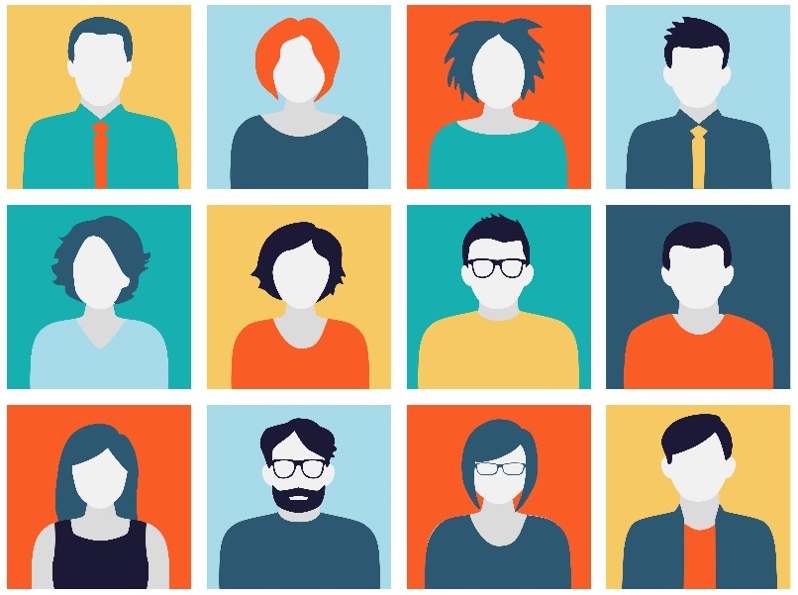In today’s time, the way we shape our identities has changed drastically. With the growth of social media, online communities and the ever-expanding internet, individuals have a lot of opportunities to shape and showcase their identities. This blog will explore how individuals construct and shift their identities, the implications this has on them and the problems they could face.
On the internet, there are various places where you can show different parts of who you are. For instance, on one website, you might want to talk about your job, what you’re good at, and your career goals. On another site, you can share things you like to do in your free time, such as your hobbies and what makes you unique. This way, you can be different versions of yourself online, depending on where you are and who you’re talking to.
Being able to show different sides of yourself online is a good thing, but it can also be a bit tricky. It’s like wearing different hats, which means you might not always feel like yourself. Sometimes, people feel like they have to be “perfect” online, which can make them anxious. They might only want to show the best parts of themselves and not talk about the real, everyday stuff, which can make it hard to be open and honest.
Websites like Facebook, Instagram, and Twitter are really important for how we make ourselves look online. They’re like a stage where we can show what we think and what we do in our lives. These websites let us talk to our friends, family, and even people we don’t know. It feels good to be a part of these websites because it makes us feel like we belong and that people like what we post. But sometimes, we want to get lots of likes, shares, and followers, and that can make us change how we show ourselves, which isn’t always a good thing.
Sometimes, people start to think that their value or how good they are is tied to how many people like or comment on their online stuff. This makes them feel like they have to do or say what’s popular or make themselves look perfect all the time. But this can make them not be themselves, and it keeps going because they want more likes and comments. Social media can bring people together from everywhere, but it can also make people feel alone and not good enough when they compare their real life to the fake stuff they see online.
The internet has created many online groups and special communities for people who like the same things or have the same interests. These places make people feel like they belong, especially if they don’t feel like they fit in where they live. These groups can help people create their own unique identity that they might not show in their everyday life.
However, they can also lead to echo chambers and polarization. Online communities sometimes solidify extreme beliefs and limit exposure to diverse perspectives. This can make it challenging for individuals to construct a balanced and nuanced identity when their primary social interaction occurs within these confined spaces.
One unique aspect of identity construction in the digital world is the option of anonymity. Online platforms often allow users to remain nameless or use pseudonyms, enabling them to explore and express aspects of themselves that they might hesitate to share in real life. This anonymity can provide a sense of liberation, allowing individuals to explore their true passions, desires, or even hidden talents.
On the flip side, anonymity can also foster negativity, harassment, and hate speech, as individuals may feel emboldened to act without accountability. Balancing the freedom that anonymity offers with responsible behavior is a critical challenge in the digital age.
Constructing identity in a digital world comes with various challenges and consequences. The pressure to conform to online trends, maintain multiple personas, and manage the emotional toll of social media can take a toll on mental health. Additionally, privacy concerns, data breaches, and the potential for identity theft highlight the vulnerability of digital identities.
The digital world has revolutionized the construction of identity, offering both liberation and challenges. The multi-faceted self, social media influence, online communities, anonymity, and various other factors shape how individuals present themselves in the digital landscape. It is essential to approach digital identity construction with mindfulness, authenticity, and responsibility to maintain a healthy balance between the online and offline worlds. Ultimately, the digital age should empower individuals to express their true selves while fostering a sense of connection and belonging in an ever-expanding digital world.
Featured Image: https://www.sellbrite.com/blog/ecommerce-sellers-can-build-buyer-personas-connect-customers/


I completely agree that finding a balance between our online and offline lives is crucial. It is equally important to learn to be self-consistent so that we don’t lose ourselves. Once we achieve this, our digital identity can actually be helpful in saving time and finding what we want. However, we must be cautious not to become too immersed in the virtual world or to feel the need to prove ourselves unnecessarily, as this can lead to self-doubt.